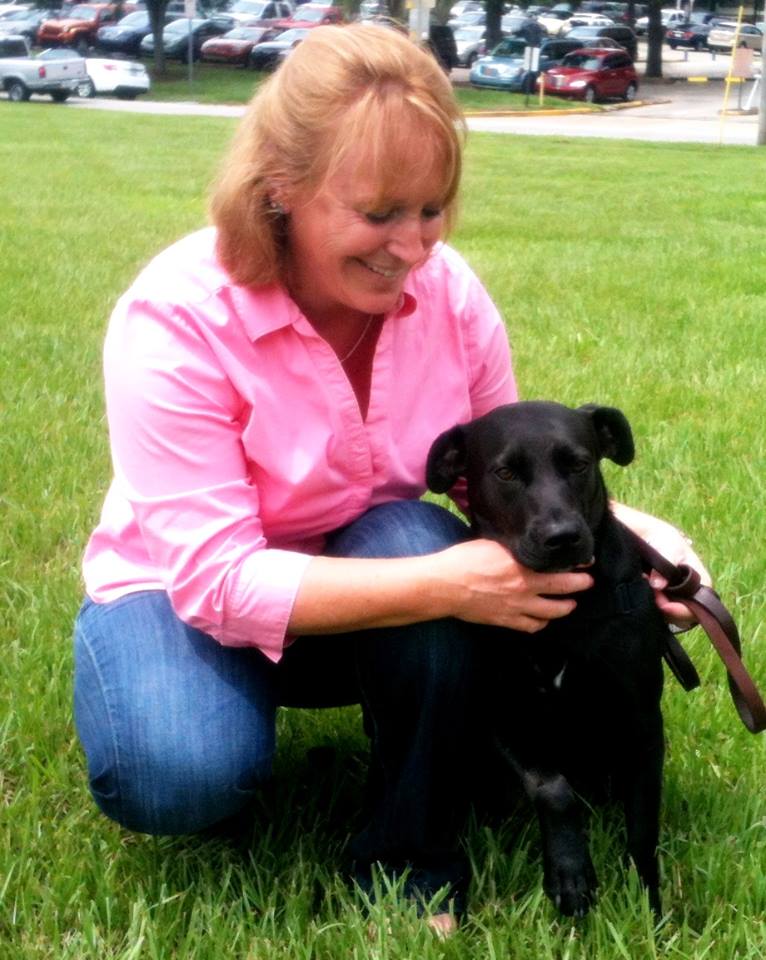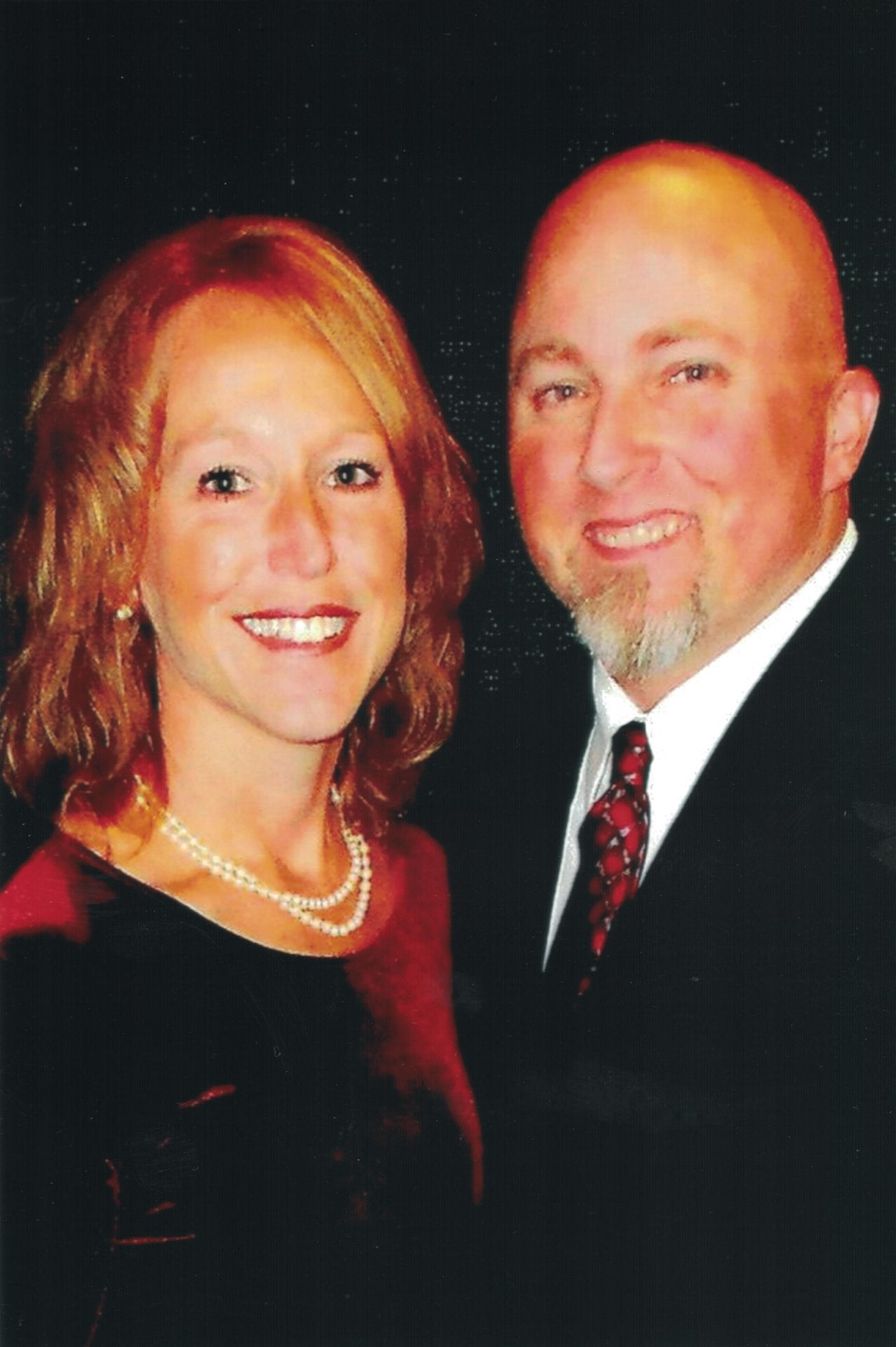Victim of Domestic Violence Uses Past Experience to Initiate Change

Donna and her PTSD service dog Ella.
University of Central Florida sociology doctoral student Donna King has taken her tragic experience and turned it into an opportunity for change.
King, along with her husband Attorney Jerrell Dayton King, recently conducted research on the U.S. court system and its impact on victims of domestic violence. The research, A Call for Limiting Absolute Privilege: How Victims of Domestic Violence, Suffering with Post-Traumatic Stress Disorder, Are Discriminated Against by the U.S. Judicial System, demonstrates the relationship among domestic violence victims, abusers and the judicial system. The paper was published in DePaul Journal of Women, Gender & the Law in Feb. 2017.
As a victim of domestic violence herself, King feels strongly about helping those who have been abused. In January 2017 she and her husband started a non-profit law firm, Victims’ Safe Harbor Foundation, Inc., that will provide services to domestic violence and child abuse victims at an affordable rate for those who are unable to qualify for legal aid.

Donna and her husband Dayton.
“We are very excited about the formation and launching of this social issue organization and what it will mean to our ability to support the domestic violence community throughout Central Florida,” King said.
From her research to her organization, King is fighting to bring awareness to what she explains as flaws in the system.
King knows the affect a court of law can have on someone who has gone through a domestic violence experience that has led to Post-Traumatic-Stress-Disorder, or PTSD. According to King, it’s a major issue that needs to be addressed in the judicial system.
“Because the court system is a perfect, legal forum for continued abuse, the domestic violence abuser enters the legal process with an advantage over his victim who suffers from PTSD,” said King. “It allows the abuser to threaten, harass, and intimidate his victim without any fear of repercussion. This rule of law that allows for the continued abuse is known as absolute privilege, and it harms the victim who is ill prepared mentally, physically and emotionally to wage legal war against her abuser.”
King wants her research to educate society on PTSD and the disadvantages a domestic violence victim faces when entering the legal process.
“Absolute privilege is not largely understood and is very misunderstood in how it is used against victims of domestic violence as a weapon for litigation abuse,” said King. “Also, society at large associates PTSD with war veterans, so this research helps to explain PTSD has implications for victims of other types of trauma.”
King’s experience with domestic violence and the subsequent litigation troubles she endured inspired her to go into the law and sociology fields. She earned her bachelor’s degree in liberal studies with a minor in psychology at UCF. She then went on to earn her Juris Doctorate at FAMU College of Law.
King likes how law and sociology complement each other in fully grasping the subject matter she’s passionate about.
“It’s important to become proficient in law and sociology for an interdisciplinary approach in dealing with these types of policy issues,” she said.
Through her research, King concluded that the court system has to work with domestic violence victims to ensure true justice. King uses the example of people with disabilities getting fair treatment to put her argument into perspective. She explained that just as policies are made to better assist people with disabilities, modifications in the system should also be made when someone suffering from domestic violence is involved.
“The Americans with Disabilities Act (ADA) requires public spaces to be changed to allow free and open use of public services for people with disabilities to exercise their rights,” said King. “Victims of domestic violence suffering from PTSD should have the same legal protection afforded by the ADA in order to modify absolute privilege, allowing for a just and fair legal outcome in the cases with their abuser.”
